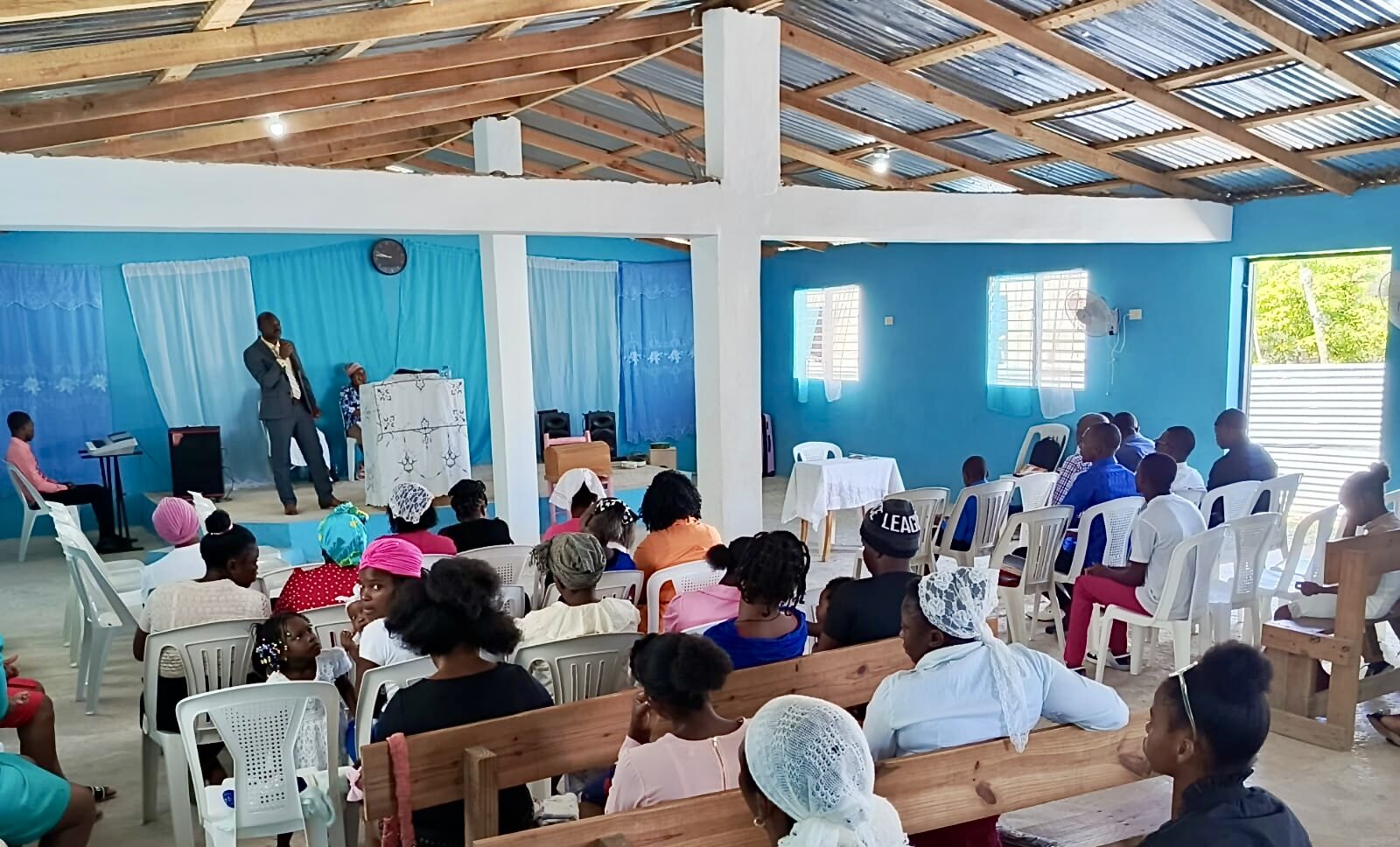Children of Promise: The Allegory’s Powerful Conclusion (Galatians 4:28-31)
Main Idea of Galatians:
To defend the gospel of grace as the sole basis for justification and Christian living, to assert the believer’s freedom from legalism through faith in Christ, and to call believers back to the truth of the gospel.
Questions to Consider:
How does Paul directly identify the Galatian believers in verse 28? What is the profound significance of being likened to Isaac as “children of promise”?
What ongoing conflict does Paul highlight in verse 29 by drawing a parallel between Ishmael’s past persecution of Isaac and the Galatians’ “present” experience? Who might the “persecutors” represent in their context?
What is the explicit command from Scripture (Genesis 21:10) that Paul quotes in verse 30? What is the serious and practical implication of this command for the Galatian church concerning the influence of legalistic teachings?
What is Paul’s definitive and summary statement in verse 31 about the true identity and heritage of believers? How does this powerfully conclude his allegory of Hagar and Sarah?
The Text:
Now you too, brothers and sisters, like Isaac, are children of promise. But just as then the child born as a result of the flesh persecuted the one born as a result of the Spirit, so also now. But what does the Scripture say? “Drive out the slave and her son, for the son of the slave will never be a coheir with the son of the free woman.” Therefore, brothers and sisters, we are not children of a slave but of the free woman.
– Galatians 4:28-31 (CSB)
Observations:
Verse 28: Paul makes a direct application to the believers: “Now you, brothers and sisters,” identifying them with Isaac as “children of promise.”
Verse 29: He draws a historical parallel: just as the child born “according to the flesh” (Ishmael) persecuted the child born “according to the Spirit” (Isaac) in the past, “so also now,” indicating a similar dynamic in their current situation.
Verse 30: Paul reinforces his argument with a question, “But what does the Scripture say?” and then quotes Genesis 21:10, which commands: “Drive out the slave woman and her son, for the son of the slave woman will never inherit with the son of the free woman.”
Verse 31: He delivers a strong concluding statement: “Therefore, brothers and sisters, we are not children of the slave woman, but of the free woman,” affirming their true spiritual lineage and status.
Interpretation:
Our Identity: Children of Promise (v. 28): Paul brings his allegory to a direct and personal point for the Galatian believers: “Now you, brothers and sisters, like Isaac, are children of promise.” This is a profound declaration of their true spiritual identity. Just as Isaac’s birth was not a result of natural human effort (“the flesh”) but a miraculous act of God fulfilling His promise to Abraham, so too the Galatians’ inclusion in God’s family is a result of God’s gracious promise received through faith in Christ, not through adherence to the Mosaic Law. As Schreiner (ZECNT) would elaborate, being “children of promise” in Pauline theology signifies that believers derive their status and inheritance directly from God’s gracious initiative, apart from any works-based merit.
The Inevitable Conflict: Flesh vs. Spirit Then and Now (v. 29): Paul then highlights an ongoing reality: “But just as then the child born according to the flesh persecuted the one born according to the Spirit, so also now.” He draws a parallel between Ishmael’s (born of flesh) mocking or mistreatment of Isaac (born of Spirit) (Genesis 21:9) and the current situation in Galatia. The Judaizers, who were promoting a return to the law (a “fleshly” approach to righteousness in Paul’s argument), were effectively “persecuting” those who stood for the freedom of the Spirit found in the gospel of grace. Moo (BECNT) mentions how this “persecution” could involve social pressure, alienation, and the unsettling of their faith by insisting on legalistic requirements. This conflict between a works-based approach and a grace-based faith is portrayed as an enduring spiritual battle.
The Scriptural Mandate: A Call for Separation (v. 30): To address this conflict, Paul turns to the authority of Scripture: “But what does the Scripture say? Drive out the slave woman and her son, for the son of the slave woman will never inherit with the son of the free woman” (quoting Genesis 21:10). This is a radical and uncompromising application of the Old Testament narrative. In its original context, it was Sarah’s demand to Abraham. Paul applies it to the Galatian situation, implying that the teachings of the Judaizers (represented by Hagar and Ishmael, the slave woman and her son) are incompatible with the gospel of grace (represented by Sarah and Isaac, the free woman and her son). There can be no co-inheritance; the legalistic system and the system of grace cannot coexist as means of salvation. Carson (NIVBTSB) highlights the seriousness with which Paul viewed this threat, indicating that the purity of the gospel necessitated a clear distinction and even a separation from those promoting a works-based righteousness that enslaves.
The Decisive Conclusion: Heirs of Freedom (v. 31): Paul powerfully concludes his allegory and this section with an emphatic affirmation: “Therefore, brothers and sisters, we are not children of the slave woman, but of the free woman.” This is the triumphant summary of their true identity. Believers are heirs of the promise, children of Sarah (the free woman), belonging to the heavenly Jerusalem which is free. Their heritage is one of liberty in Christ, not bondage under the law. This theological conclusion is deeply liberating, providing believers with assurance of their standing before God based solely on His grace and promise, not their own efforts.
Application:
Embrace Your True Identity in Christ: Actively remind yourself that if you are a believer, your identity is that of a “child of promise,” free and accepted by God through His grace, not because of your performance.
Recognize and Resist Spiritual “Persecution”: Be aware that when you live by the Spirit and stand for gospel freedom, you may face pressure or opposition from legalistic mindsets (whether from others or within yourself). Stand firm.
Be Discerning About False Teachings: Take seriously the call to distinguish between the true gospel of grace and teachings that lead to spiritual bondage. Understand that some influences are incompatible with true Christian freedom.
Live as an Heir of Freedom: Let your status as a child of the “free woman” shape how you live. Walk in the liberty Christ has secured for you, not in fear or under the burden of trying to earn God’s favor.
Cherish the Promise: Anchor your hope and security in God’s promises, which are fulfilled in Christ, rather than in your ability to keep rules and regulations.
Connection to the Main Idea:
This concluding part of Paul’s allegory (Galatians 4:28-31) powerfully reinforces his defense of the gospel of grace as the sole basis for justification and Christian living. By definitively identifying believers as “children of promise” and “children of the free woman,” Paul contrasts their God-given liberty with the slavery engendered by legalism (represented by the “slave woman”). The call to “drive out” the slave woman and her son underscores the incompatibility of these two systems and solidifies the assertion that true believers find their freedom and inheritance through faith in Christ, not through the law.
How Does This Text Point to Christ?
This passage is deeply Christ-centered. It is through Christ that believers become “children of promise” (v. 28), heirs according to the Abrahamic covenant which finds its ultimate fulfillment in Christ. The status of being children of the “free woman” (v. 31) is a direct result of the liberating work of Christ, who freed us from the curse and bondage of the law. The spiritual conflict described (v. 29) often arises because the message of grace through Christ alone is offensive to a world (and sometimes a church) that prefers self-effort. The inheritance promised (v. 30) is secured and guaranteed in Christ.
Summary:
In Galatians 4:28-31, Paul powerfully concludes his allegory of Hagar and Sarah by directly applying it to the believers. He affirms that they, like Isaac, are “children of promise,” born of the Spirit. He acknowledges the ongoing conflict where those of the flesh (representing legalism) persecute those of the Spirit. Drawing from Scripture, Paul makes it clear that the way of legalistic slavery (Hagar/Ishmael) is incompatible with the way of grace-filled freedom (Sarah/Isaac) and has no share in the inheritance. He triumphantly declares that believers are children of the free woman, thus solidifying their identity as heirs of God’s promise and grace, not slaves to the law.
Be Intentional:
This week, reflect daily on the truth: “I am not a child of the slave woman, but of the free woman.” Consider how this identity should free you from fear, performance-based acceptance, and self-condemnation.
When you encounter teachings or internal thoughts that lean towards legalism or earning God’s favor, intentionally recall Paul’s strong admonition in verse 30 and reaffirm your standing based purely on God’s promise in Christ.
Ask Yourself:
What “Ishmael-like” tendencies (reliance on my own efforts, pride in my spiritual disciplines, judgment of others based on external standards) do I need to “drive out” of my thinking and living?
How does embracing my identity as a “child of promise” and a “child of the free woman” change the way I approach my relationship with God and my service to Him?
In what areas of my life do I still feel enslaved to fear, rules, or the expectations of others, rather than walking in the full freedom Christ has purchased for me?
Bibliography:
Carson, D. A. (General Editor). NIV Biblical Theology Study Bible (NIVBTSB). Zondervan.
Merida, Tony & Platt, David. Exalting Jesus in Galatians (CCE) (Christ-Centered Exposition Commentary).
Moo, Douglas J. Galatians (BECNT) (Baker Exegetical Commentary on the New Testament).
Schreiner, Thomas R. Galatians (ZECNT) (Zondervan Exegetical Commentary on the New Testament).
Schreiner, Thomas R. Christ Crucified: A Theology of Galatians.
White, A. Blake. Galatians: A Theological Interpretation (GTI).


